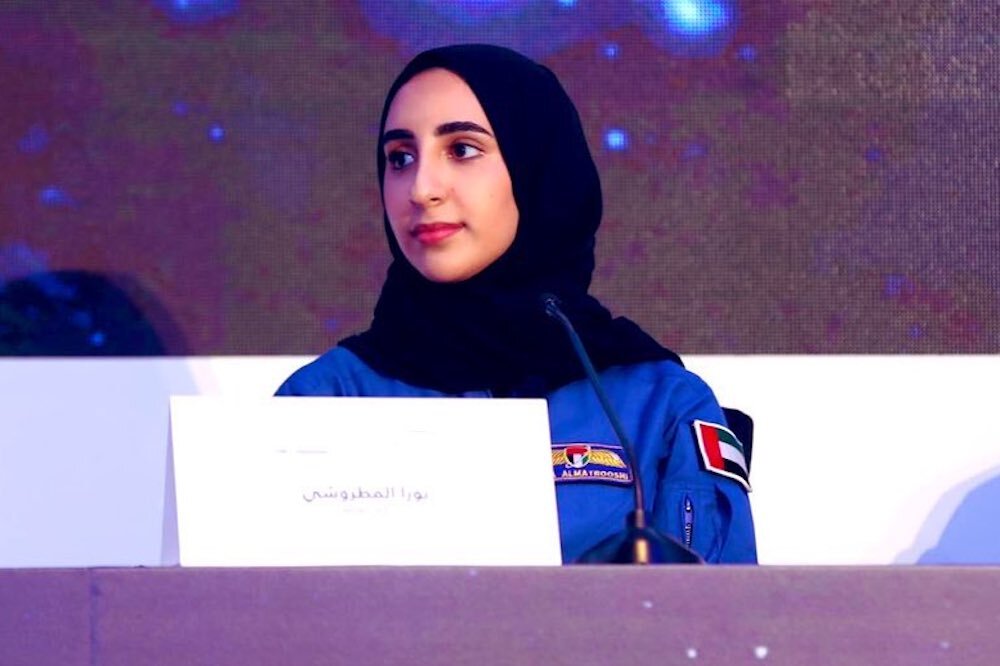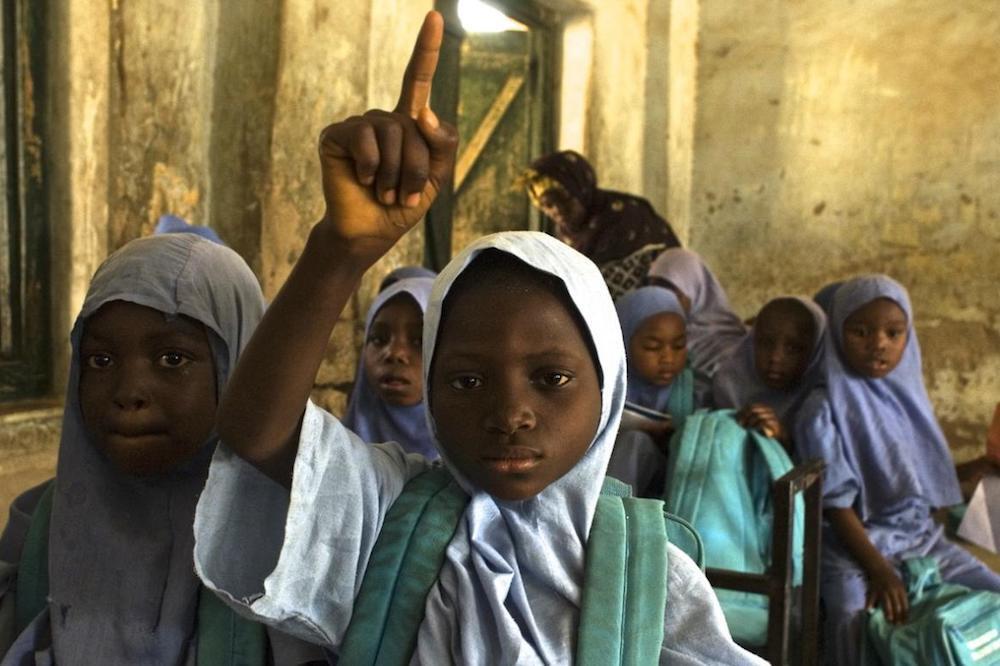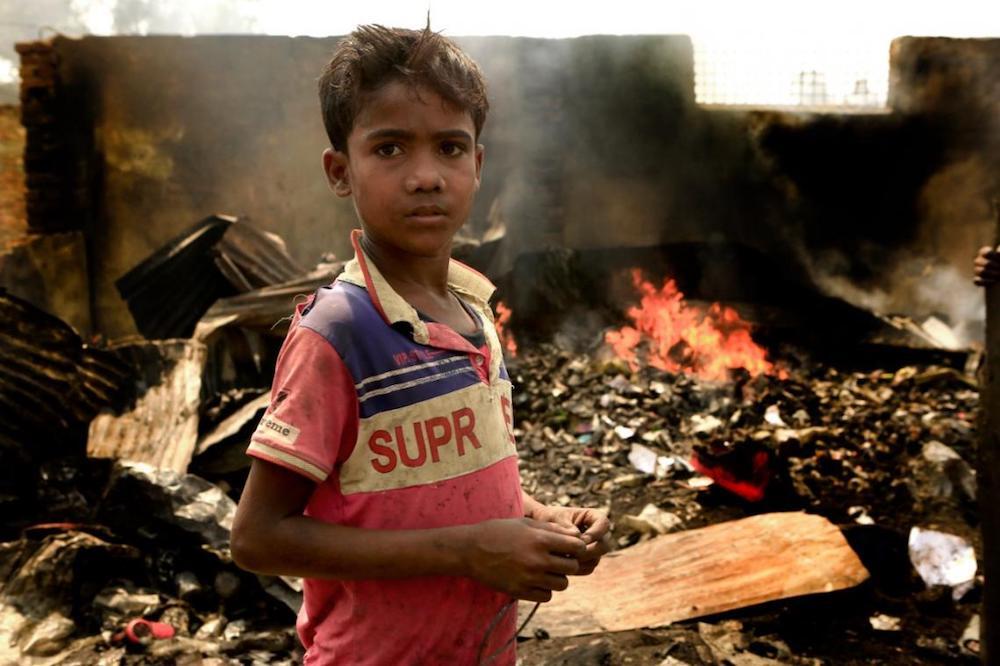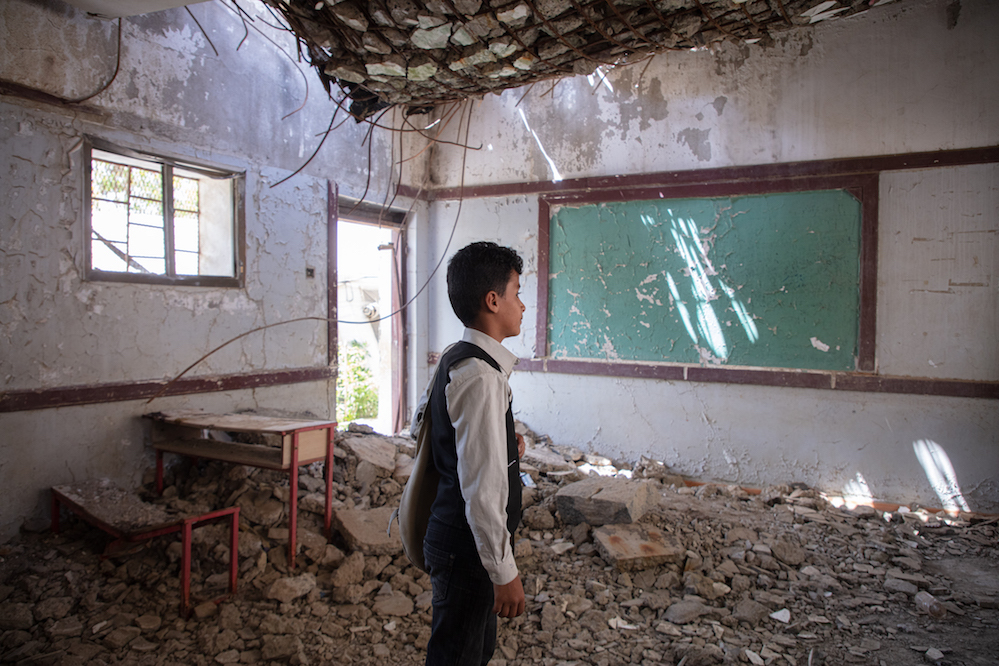
Five things you need to know this week about global education

Children in conflicts, Girls' education, Teachers and learning
The first Arab woman to train as an astronaut tells how her love of space was inspired by school lessons at the age of five.
School inspired Nora to reach for the stars
The first Arab woman to start astronaut training has revealed how she began dreaming about going into space during school lessons at the age of five.
Nora Al Matrooshi, from the United Arab Emirates, will head to the United States later this year head to train at NASA’s Johnson Space Center in Texas.
The 28-year-old mechanical engineer said her love for space was ignited during her classes and stargazing events. Nora told Gulf News: “We had this arts and crafts teacher who told us to make suits for space exploration. There were stars made of paper and our classroom was transformed to simulate the environment on the moon.
“It stirred my imagination – I was five years old back then – and I told myself one day I would like to go to the moon.”
Nora has been selected along with helicopter pilot Mohammed Al Mulla, 33, for the UAE Astronaut Programme. Other astronauts from the UAE are currently training at NASA and preparing for missions to the International Space Station.
In a message to children, especially girls, she said: “Achieving a dream starts with small steps. If you need help at the beginning, ask your parents and teachers, who are the best help for you.
“When you are shooting for the moon, even if you don’t reach the moon, you will land among the stars.”
10th mass school kidnapping in Nigeria

Recent abductions by gunmen are forcing schools to close (UN Photo)
About 125 students are still missing after an attack by armed men on a boarding school in Nigeria’s Kaduna state. Another 28 have been reunited with their families.
Parents of those kidnapped from Bethel Baptist High School say they were promised their children would be safe if food was delivered to the gunmen, with a ransom demand to follow.
The overnight raid is the 10th mass school abduction in northwest Nigeria since December. Authorities blame bandits seeking ransom payments.
UNICEF estimates more than 1,120 schools are closed across the region – and even where schools are open, many parents are too afraid to send their children. That has left more than 300,000 students out of school.
New learning centres for Rohingya refugees

New funding will help rebuild learning centers and provide mental health services for vulnerable children and youth (UNICEF / Saeed)
Emergency funding will help to rebuild learning centres for Rohingya children that were damaged by a huge fire at one of the world’s biggest refugee camps.
The March disaster at Cox’s Bazar in Bangladesh killed 15 people and displaced more than 45,000 – half of them vulnerable children and youth.
Education Cannot Wait – the fund for education in emergencies – has given a $250,000 first emergency response grant to support non-profit BRAC and other local partners. More than 50 BRAC learning centres were among 212 destroyed or damaged by the blaze.
About 5,000 children will benefit, with specialised support for girls and children with disabilities.
Education initiative to help prevent AIDS
#EducationPlus launched in response to alarming rates of HIV among adolescent girls and young women in Africa https://t.co/SQlR90Qt8x pic.twitter.com/wyk5GfgwJt
— UNAIDS (@UNAIDS) July 6, 2021
Five United Nations organisations have joined forces to launch an initiative to ensure all children in sub-Saharan Africa have equal access to free secondary education by 2025.
Education Plus is a five-year programme that will also contribute towards preventing HIV by empowering girls and young women. It is a partnership between UNAIDS, UN Women, UNESCO, UNFPA and UNICEF.
“We know that keeping girls in secondary school can reduce their risk of HIV infection by a third or more in places where HIV is common. It reduces their risk of child marriage, teenage pregnancy and gender-based and sexual violence and it can provide girls with the important skills and competencies for their economic empowerment,” said Winnie Byanyima, Executive Director of UNAIDS.
Before the pandemic, about 34 million secondary school-aged girls in sub-Saharan Africa were denied a full education. An estimated 24% of girls and young women aged 15 to 24 were not in education, training or employed, compared to 14.6% of young men.
Yemen conflict could put 6m out of school

12-year-old Ahmed inside one of the damaged classes of Al-Hamzi school, Hajjah (UNICEF / Mariah)
Six years of conflict in Yemen have left more than two million children out of school – and another four million are at risk of dropping out.
That’s because two-thirds of teachers have not had a regular salary for four years and many are leaving the profession, according to a new UNICEF report.
The number of children out of school is now double that in 2015 when the conflict began.
Mohammed, 49, who was a deputy school head, told UNICEF: “Life needs have become very hard to meet. Teaching is no longer fulfilling the purpose, so I found myself forced to abandon teaching and find other work that can help my family keep afloat.”
More news

